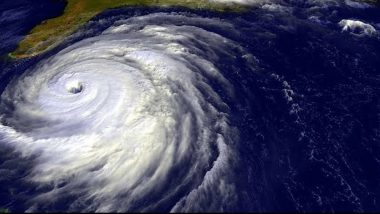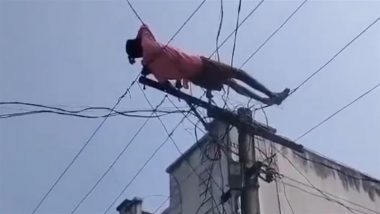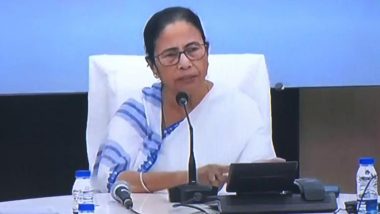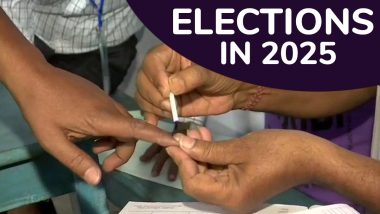New Delhi, May 21: The Centre has asked Andhra Pradesh, Odisha, Tamil Nadu, West Bengal and Andaman and Nicobar Islands to ensure that health facilities are stocked with essential medicines and supplies to meet any exigencies in the wake of Cyclone Yaas which is expected to make a landfall later this month.
According to the India Meteorological Department, a low pressure area is likely to form over north Andaman Sea and is likely to intensify into a cyclonic storm by May 24, and expected to move northwestwards and reach near Odisha and West Bengal coasts around May 26.
Apart from the impact of cyclone in Odisha and West Bengal, there may be widespread rains in Andaman and Nicobar Islands and districts of the east coast that may cause inland flooding, it has said. Cyclone Yaas: Bhubaneswar Witnesses Downpour, IMD Predicts More Rain, Thundershowers with Strong Gusty Winds.
Union Health Secretary Rajesh Bhushan wrote to the chief secretaries of Andhra Pradesh, Odisha, Tamil Nadu, West Bengal and Andaman and Nicobar Islands, saying public health challenge, already posed by the coronavirus pandemic, may be compounded due to direct impact of COVID and public health risks posed by water, vector and airborne diseases that may arise in the community or in displaced population living in camps or temporary shelter settings.
Bhushan asked these states and union territories to activate the Health Sector Incident Command System and Emergency Operation Centre/Control Room, identify a nodal officer and convey his contact details to the Union Health Ministry.
"Activate health sector disaster management plan and the hospital disaster management plan of all the coastal districts of Andhra Pradesh, Andaman Islands, Odisha, Tamil Nadu, and West Bengal. The Emergency department preparedness in all these hospitals needs to be reviewed," he said.
He stressed on advance planning on evacuation from the community and health facilities, which are in the path of cyclone, to safer places or bigger hospitals. Mobilisation of the district surveillance units and public health teams for COVID management also needs to be reoriented on possible outbreak of epidemic-prone diseases such as influenza, measles, acute diarrhoeal diseases, dysentery, leptospirosis, dengue, malaria, etc, he said.
Bhushan said health facilities at all levels in the affected areas, including those identified for COVID treatment needs to be made fully functional with additional human resource drawn from unaffected districts.
There should be adequate power back up arrangements for all the hospitals, labs, vaccine cold chain and oxygen generation units (MLO and PSA plants) and other supportive medical facilities, he said.
"It needs to be ensured that health facilities are stocked with adequate essential medicines and supplies to meet any exigencies arising due to disruption on movement of vehicles, due to high wind and heavy rainfall," he said. Bhushan said adequate stock of ORS, chlorine tablets, bleaching powder, and specific drugs to intervene for these diseases need to be ensured.
"This is as crucial for non-COVID healthcare needs as it is for COVID management in affected communities," he said. Advance planning should be done to ensure unhindered movement of oxygen tankers, especially on advance movement of empty tankers by the Air Force aircrafts or the Indian Railways, he said. Cyclone Yaas Live Tracker Map: Cyclonic Storm May Hit West Bengal, Odisha Coasts on May 26, Check Realtime Status Here When It Becomes Active.
"Functional ambulance services shall be assessed and requirements for the districts likely to be affected worked out in advance and mobilized. Medical care and public health interventions need to be planned for camps housing evacuated population.
"Rapid antigen testing may be taken up for population in camps followed by RT-PCR testing for symptomatic negatives of Rapid antigen tests. Senior citizens and those suffering from diabetes, hypertension, liver/ kidney, respiratory disease, immuno-compromised diseases need to be specifically monitored with COVID perspective as they constitute people under high risk," Bhushan said.
As communication is likely to be disrupted at some places, major hospitals in the affected districts may be provided with satellite phones or radio connections, the health ministry official said.
(This is an unedited and auto-generated story from Syndicated News feed, LatestLY Staff may not have modified or edited the content body)








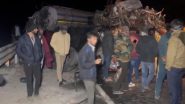




 Quickly
Quickly








